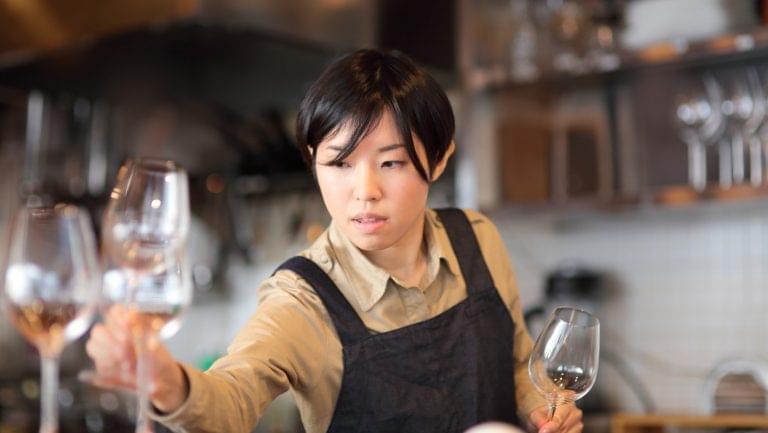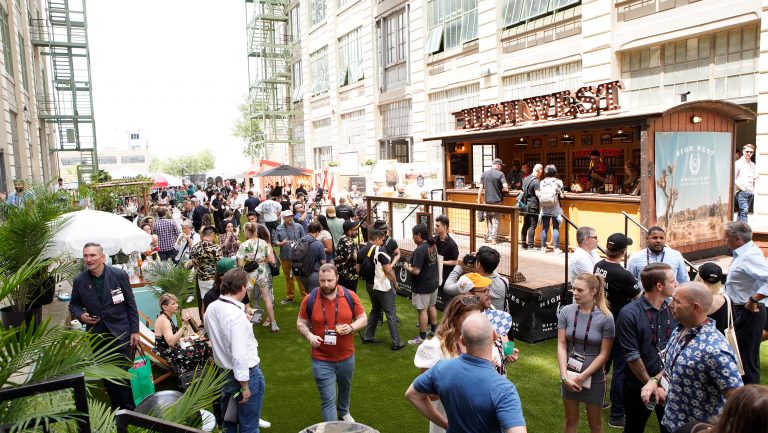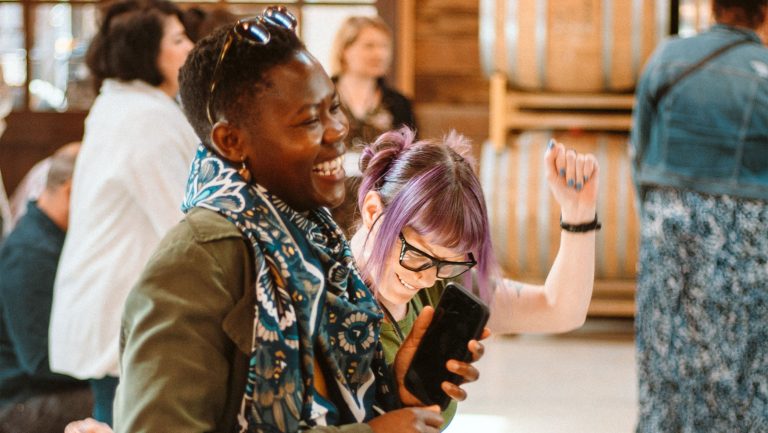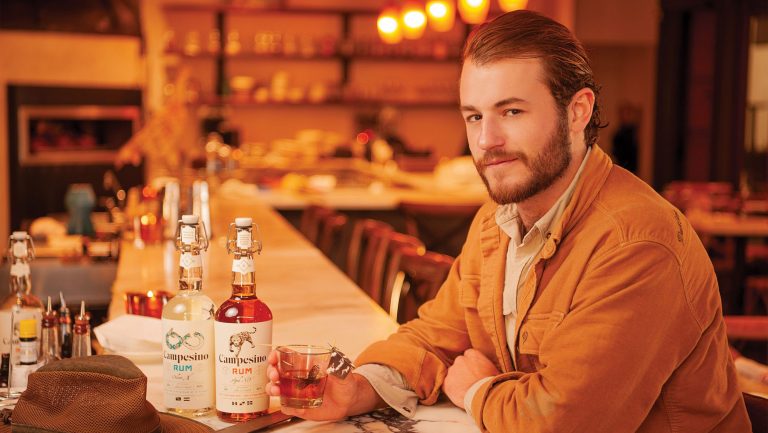With competition fierce for jobs in wine, a panel at SommCon, which offered tasting and education sessions for trade professionals from June 23 to 25 at The Westin Georgetown in Washington, D.C., addressed the topic of career prospects for wine professionals in 2019—and offered advice on how to land the jobs that are out there.
Experience Trumps Credentials
When it comes to hiring sales consultants, Edward Rapp, a district manager at Southern Glazer’s Wine & Spirits based in Silver Spring, Maryland, isn’t worried about credentials. “Whenever someone does come to us with credentials, usually they’re very driven, and usually that’s a virtue,” he said. “However, sometimes it becomes a vice because in our world, the ability to be managed is also necessary.”
“The biggest thing I’ve learned is that you can’t trust letters after a name the way people think you can,” said Raj Vaidya, the head sommelier for New York City’s Restaurant Daniel and the corporate sommelier for The Dinex Group, for which he oversees 16 wine programs worldwide. “I’ve come to put a lot less stock in assuming what people know on the basis of what they’ve done in terms of education, and I pay a lot more attention to their experience.”

Don’t miss the latest drinks industry news and insights. Sign up for our award-winning newsletters and get insider intel, resources, and trends delivered to your inbox every week.
But that experience needn’t be directly correlated to the job at hand. Vanessa Bernarding, the vice president of talent management and human resources for Total Wine & More in Bethesda, Maryland, said that sometimes candidates should worry more about the experiences they are getting rather than constantly climbing certain ladders. “Sometimes people think, ‘I can’t take that role because it’s not a step up, or my résumé’s going to look bad if I go do this other thing,’” she said. “Very differently, we look at it as ‘What experiences are you collecting?’ Can we see that you’ve been willing to learn and try new things, and be successful with them?”
Those kinds of experiences might even include stages or travel. “When you have a résumé in front of you that involves someone having done a stage at a winery,” said Vaidya, “or having traveled, on a very basic level it makes the person more interesting, and I am more inclined to want to talk with them.” Jann Cotter, the vice president of wine sales education for Jackson Family Wines, headquartered in Santa Rosa, California, agreed. Because she herself tries to take vacations to wine regions she hasn’t previously visited, candidates who display similar self-education and interests are intriguing to her. When assessing a candidate, she said, she often thinks, “What have you done to personally grow?”
Even if a skill or experience isn’t directly related to wine, it could be a positive from a hiring manager’s viewpoint. “I look for people who have been in team sports,” said Cotter. That shows her “you’re disciplined, you’ve had goals, and you can get along with other people.” She doesn’t always look for a lot of wine-based experience, because she believes that knowledge and those skills can be taught. Emotional intelligence, she says, is often more important.
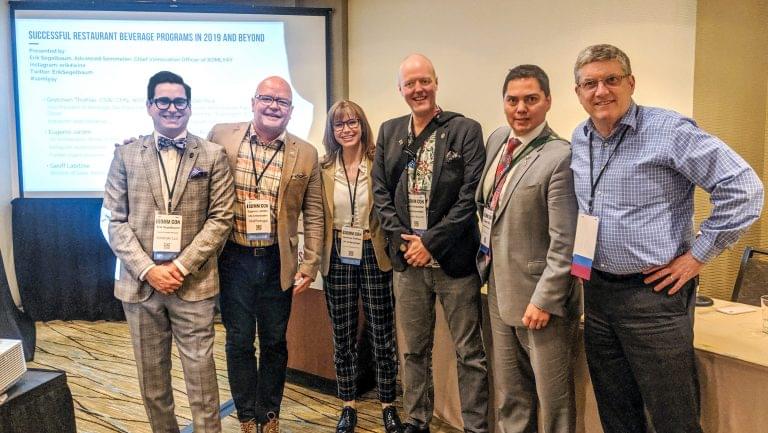
How to Build a Financially Successful Drinks Program
Panelists at SommCon in Washington, D.C., share their tips for building a balanced beverage concept—and maximizing profitability
The Future Is in the Field
Though floor sommelier positions are popular right now, future careers in wine may be more abundant in the field than on the floor. “Drone pilots!” exclaimed Cotter. “I see viticulture, especially, growing in a lot of different ways.” Such experience in the vineyard may also lead to bigger things. “We have a woman,” Cotter said, “who went from a tractor driver, into the vineyards, and now is in the cellar.”
Vaidya, who recently worked with a tech company based in Denmark to produce a wine course, also supported the idea that the intersection of technology and wine will be a source of jobs. “I think,” he said, “that especially from the perspective of tech, there’s a huge space where other specializations can be integrated into wine.”
The ability to work with data will also be an asset in the industry. “Your ability to read and interpret data quickly,” said Rapp, “will definitely set you apart.” His company is currently rolling out an initiative to put data analytics in the hands of sales consultants rather than filtering it down to them from a higher level. “So,” he said, “I would say people entering the business should have a good understanding of how to read and interpret data.”
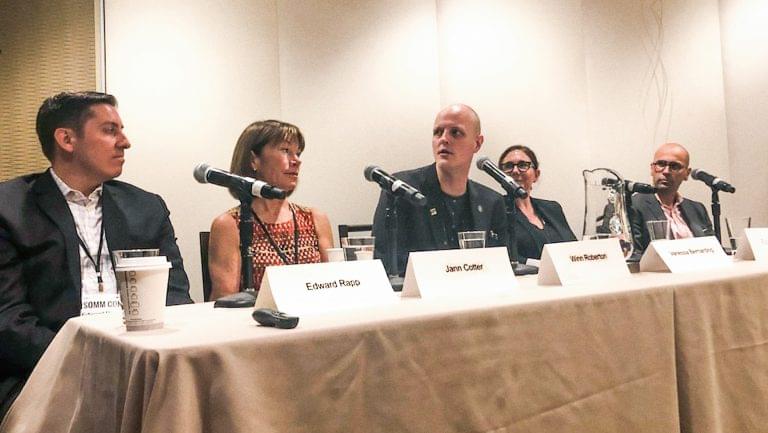
Take Proactive Steps to Get Ahead
When preparing to take that next step—either in a current job or by getting a new one—passion matters. “If you can communicate that you love something,” said Vaidya, “then I’m more interested in helping you get there. I’m less interested in engaging the people who want it because they want it, and more interested in engaging the people who want it because they love it.”
And when it comes to rising in the ranks regarding salary, a little knowledge and chutzpah goes a long way. Cotter encourages candidates to negotiate. “It’s important to really understand the art of negotiation when it comes to salary,” she said. “A lot of people are so happy to get the job that they don’t negotiate—women especially.”
Cotter advised that candidates should know what the salary range is for the open position and know what they are worth within that range—and then go higher than that when stating their salary requirement. “Start higher than what you think, and then have very good data to back it up,” she said. “And stay firm on it.”
If an organization can’t meet salary demands, the panel encouraged candidates to get creative—whether by asking for more vacation time or asking for financial benefits in other ways. “Ask them to pay for education if they can’t meet you on salary,” said Rapp. “That’s an easy write-off for the company as well as an investment.”

Dispatch
Sign up for our award-winning newsletter
Don’t miss the latest drinks industry news and insights—delivered to your inbox every week.
When she’s not writing about beverage, travel, or weird science, Julie H. Case can be found deep in America’s forests, foraging for mushrooms.

